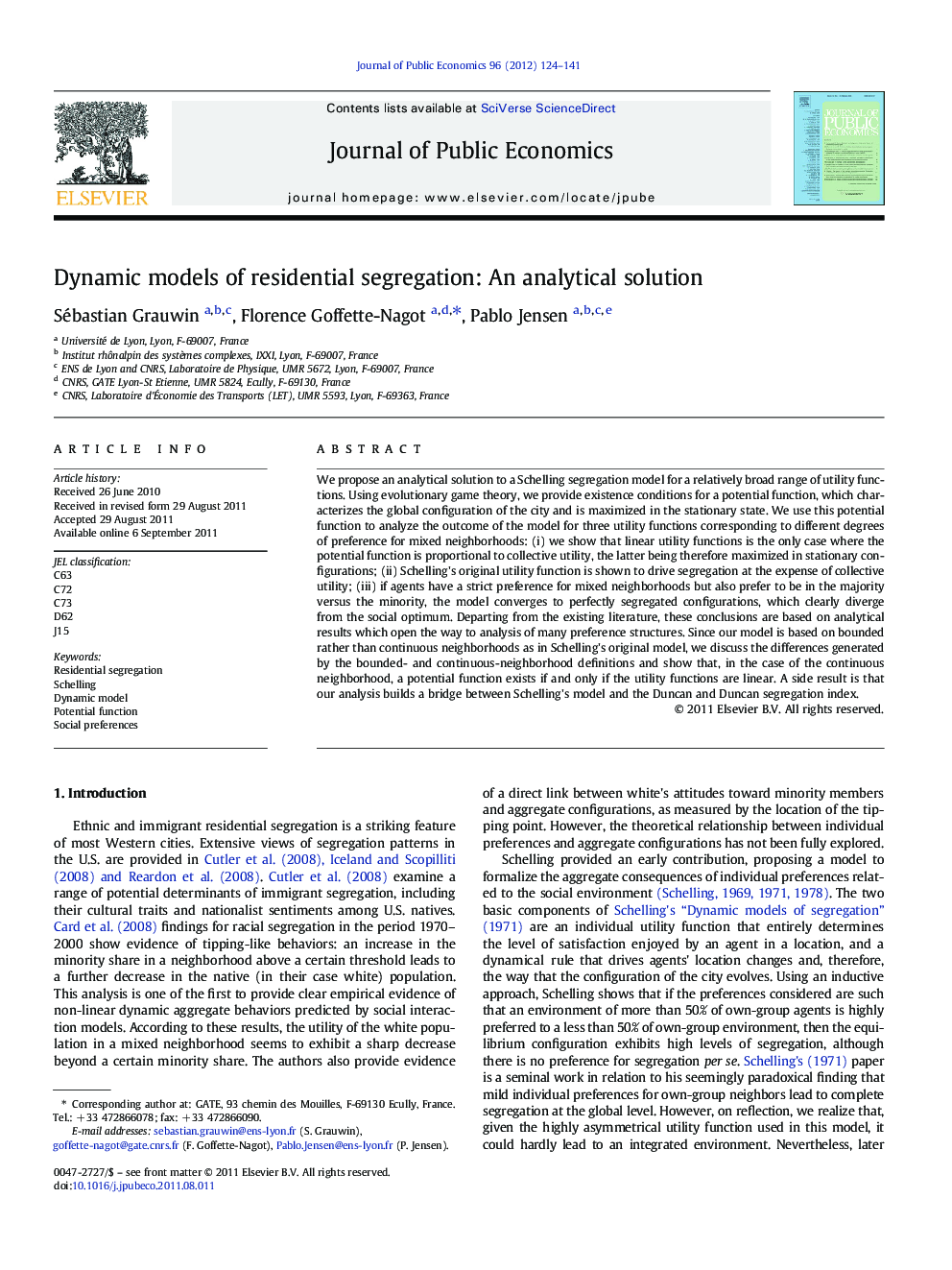| Article ID | Journal | Published Year | Pages | File Type |
|---|---|---|---|---|
| 969255 | Journal of Public Economics | 2012 | 18 Pages |
We propose an analytical solution to a Schelling segregation model for a relatively broad range of utility functions. Using evolutionary game theory, we provide existence conditions for a potential function, which characterizes the global configuration of the city and is maximized in the stationary state. We use this potential function to analyze the outcome of the model for three utility functions corresponding to different degrees of preference for mixed neighborhoods: (i) we show that linear utility functions is the only case where the potential function is proportional to collective utility, the latter being therefore maximized in stationary configurations; (ii) Schelling's original utility function is shown to drive segregation at the expense of collective utility; (iii) if agents have a strict preference for mixed neighborhoods but also prefer to be in the majority versus the minority, the model converges to perfectly segregated configurations, which clearly diverge from the social optimum. Departing from the existing literature, these conclusions are based on analytical results which open the way to analysis of many preference structures. Since our model is based on bounded rather than continuous neighborhoods as in Schelling's original model, we discuss the differences generated by the bounded- and continuous-neighborhood definitions and show that, in the case of the continuous neighborhood, a potential function exists if and only if the utility functions are linear. A side result is that our analysis builds a bridge between Schelling's model and the Duncan and Duncan segregation index.
► We analyze Schelling segregation model using evolutionary game theory. ► Existence conditions for a potential function are provided. ► One can then consider a whole range of utility functions with bounded neighborhoods. ► This includes linear, Schelling's and asymmetrically peaked utility functions.
